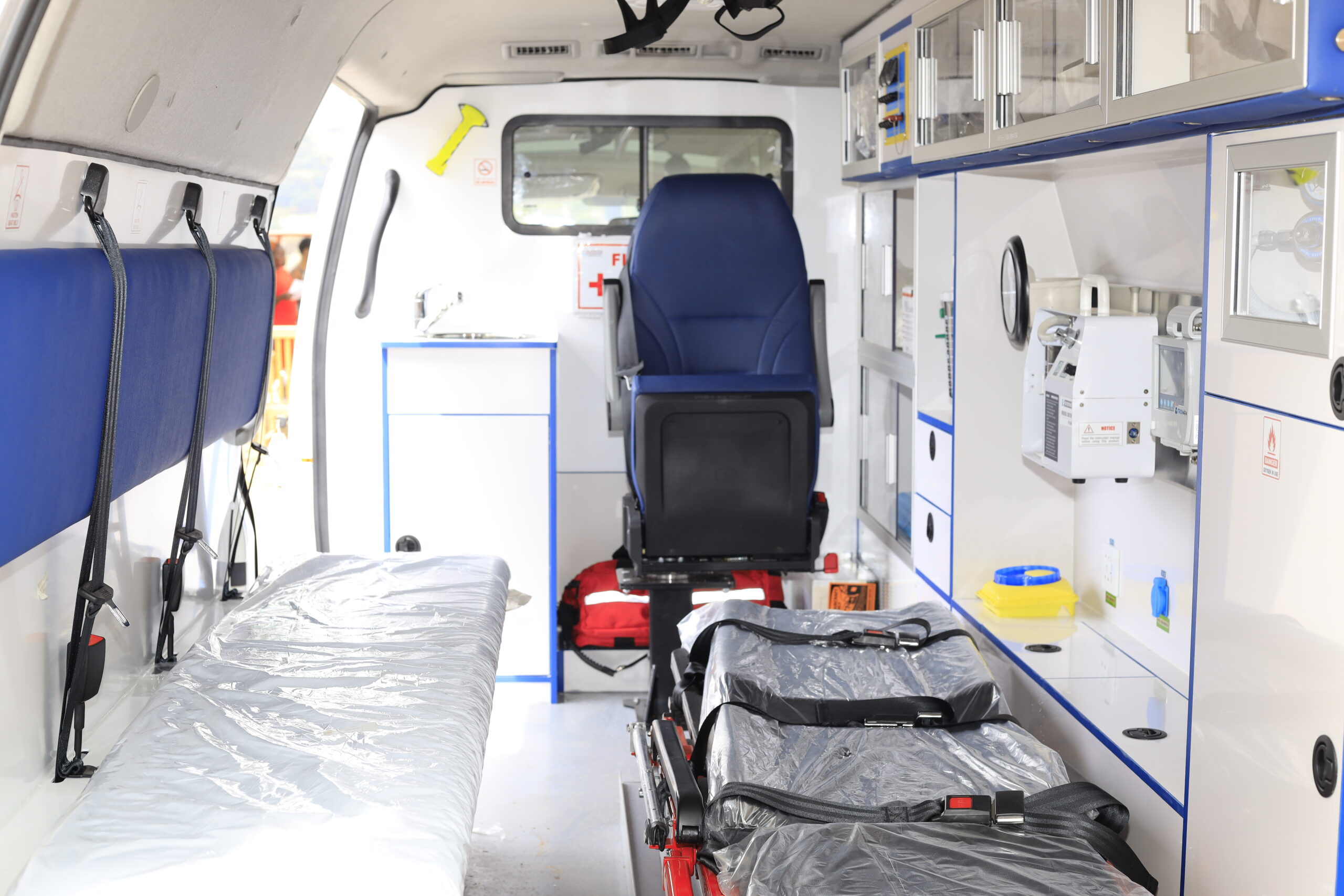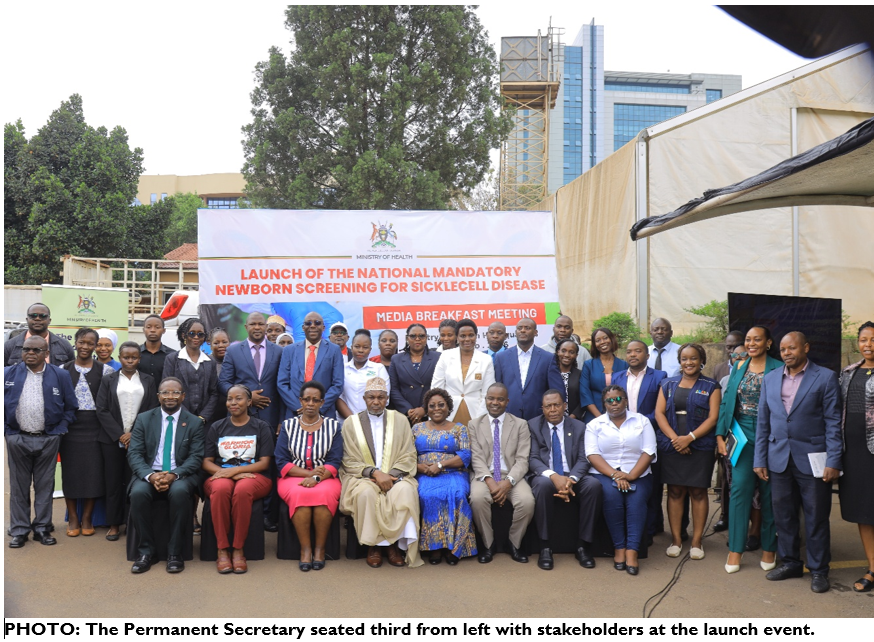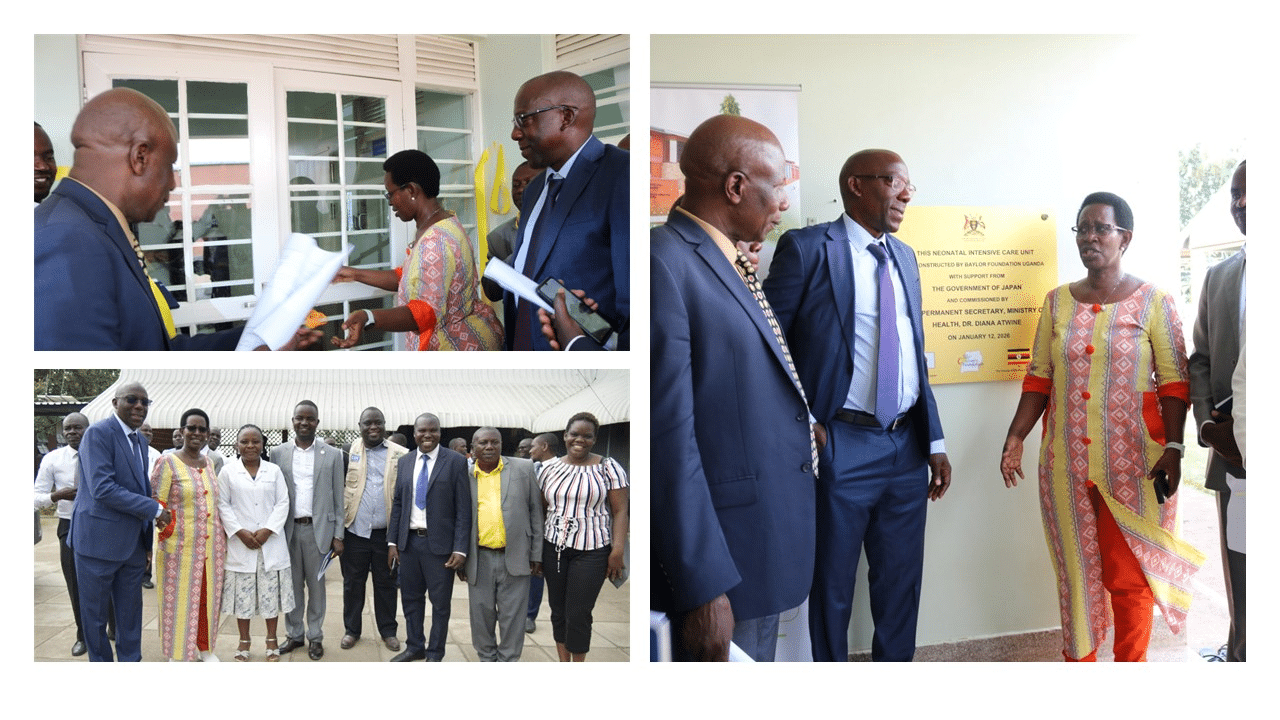
 Dr. Stephen Obbo, Director of Mbale Regional Referral Hospital receives keys for the Opiod Agonist Therapy (OAT) Clinic Ambulance from Dr. John Baptist Waniaye, Commissioner of Emergency Medical Services at the Ministry of Health. Looking on is Dr. Dithan Kiragga (R), Executive Director of Baylor Foundation Uganda . Also present are Dr. Denise Birungi, Director of Medical Programs (with glasses) and David Masaba, the Principal Psychiatric Clinical Officer from Mbale Regional Referral Hospital.
Dr. Stephen Obbo, Director of Mbale Regional Referral Hospital receives keys for the Opiod Agonist Therapy (OAT) Clinic Ambulance from Dr. John Baptist Waniaye, Commissioner of Emergency Medical Services at the Ministry of Health. Looking on is Dr. Dithan Kiragga (R), Executive Director of Baylor Foundation Uganda . Also present are Dr. Denise Birungi, Director of Medical Programs (with glasses) and David Masaba, the Principal Psychiatric Clinical Officer from Mbale Regional Referral Hospital.Baylor Foundation Uganda has officially handed over the country’s first highly specialized ambulance to Mbale Regional Referral Hospital (RRH). The state-of-the-art ambulance will play a critical role in supporting health workers to administer life-saving medication to people who inject drugs—in the most affected region in Uganda.
The handover ceremony was presided over by Dr. John Baptist Waniaye, the Commissioner of Emergency Medical Services at the Ministry of Health, on behalf of Dr. Charles Olaro, the Director General of Health Services. Dr. Dithan Kiragga, Executive Director of Baylor FU, handed the ambulance to Dr. John Baptist Waniaye, who then formally presented it to Dr. Stephen Obbo, Director of Mbale RRH.
Uganda is home to an estimated 9,500 people who inject drugs as of March 2025, according to Harm Reduction International, a challenge that threatens the country’s progress towards ending HIV by 2030. Without adequate care and timely intervention, many of these cases can result in severe mental health conditions and preventable fatalities. This will subsequently impact families emotionally and economically, and strain the country’s health system.
In his remarks, Dr. Stephen Obbo thanked Baylor Foundation Uganda for its continued partnership with the hospital and further appreciated the organization for donating the first specialized ambulance designed to support the treatment of substance-use–related emergencies. He noted that Mbale RRH is currently the only hospital in Uganda managing patients with substance-use disorders, and the ambulance will significantly enhance their response capacity. He added that the hospital is fast becoming the largest entity managing a fleet of emergency ambulances across the Bukedi, Bugisu, and Sebei sub-regions, serving a population of over four million people. He pledged that the ambulance will be put to proper and intended use.

The Commissioner of Emergency Medical Services highlighted the growing epidemic of drug and substance abuse in Uganda, especially among young people aged 15–30. He stressed that without targeted interventions, the problem could escalate further. He noted that while the country requires 53 highly specialized ambulances, only 11 advanced life-support units currently exist. “This specific ambulance is special—it is the first of its kind in the country,” he emphasized, commending Baylor Foundation Uganda for its innovation and partnership.
Dr. Dithan Kiragga reiterated Baylor Foundation Uganda commitment to supporting the Ministry of Health in delivering on its health mandate. He affirmed that the Foundation will continue to champion solutions that strengthen life-saving treatment and improve health outcomes for vulnerable populations.


